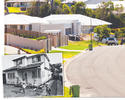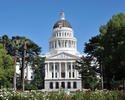Our way of life is a miracle for this kind of world, and … the danger lies in thinking that of it as ‘natural’ and likely to endure without a passionate determination on our part to preserve and defend it.” — W.V. Aughterson, The Australian Way of Life, 1951
For generations, Australia has enjoyed among the highest living standards in the world. The “Australian dream”, embodied largely by owning a single-family home with a small backyard, included well over 70 per cent of households. read more »






















